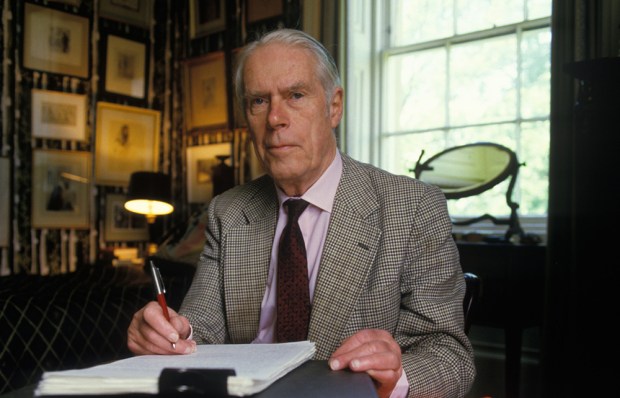The week began badly when I spotted three grey squirrels gathering beechnuts in our arboretum. During our time at our home in Northamptonshire, my wife and I have anguished over our reluctance to indulge in wanton killing — and how far our tolerance of damage to the trees and nesting birds will stretch. But two years ago, we resolved the dilemma when squirrels wrecked our 30 nesting boxes. They had gnawed into the entrance holes before destroying the eggs and chicks. We employed two expert keepers who, in nine months, shot or trapped more than 400 squirrels over the 70-acre area. The increase in young birds the following summer has made us determined to maintain our ‘no squirrel’ policy. I subsequently wrote a letter to the editor of the RSPB magazine, putting these startling statistics to him and urging the charity’s support for a more aggressive approach to save the red squirrel and protect the bird population. My letter failed to appear, so I wrote again. This solicited a reply but no publication. The position of the RSPB appears to be to do nothing that could provoke hostility from its donors. They don’t want to upset an elderly group of people who have a Walt Disney view of the countryside.
To Queen Mary University, London, where I had been invited to deliver the Hennessy Lecture — named after one of this country’s most distinguished political analysts, Lord Hennessy of Nympsfield. The title of my lecture — ‘The Forgotten People’ — took me back to my earliest political experiences in east London and Liverpool. Most of my experience in the 1980s focused on the reclamation of derelict land. The 1990s saw that focus expand through the City Challenge Fund to the endemic problems associated with run-down council estates. The problems persist. Last year, David Cameron invited me to co-chair with the minister for housing — then Brandon Lewis, now Gavin Barwell — an initiative to regenerate 100 of England’s most problematic housing estates. The last prime minister’s initiative has enabled us to explore two issues associated with — but not central to — regeneration. We have set in train two related inquiries: to explore the cost to public funds involved in providing the social infrastructure that sustains these estates and to consult those living on such estates about their perspective on the effectiveness of the policies that are supposed to benefit them. I have long been preoccupied by the consequences of policy being concentrated in London. Countless decent, hardworking people administer myriad policies, but how carefully do we ask about the coordination and management at a local level? Are the assumed beneficiaries ever asked their opinion on the programmes and how they are put in place? As the devolution agenda expands, and as the new Prime Minister pursues her very desirable objective of spreading wealth more widely, these are timely questions.
Forty years ago, Anne and I bought our 18th-century house. We had searched for years for the home of our dreams and Thenford ticked every box. Houses of this sort have gardens, but ours — although it had the remnants of an 18th-century garden — was in the middle of some 60 acres of broken-down woodlands, including silted up medieval fish ponds, and a lake submerged beneath rushes and willows. In a somewhat haphazard way, we began to reclaim, rebuild and replant. We now have the 70-acre arboretum with more than 3,000 types of trees and shrubs, planted around more formal features including two new lakes, with the original lake cleared and the fish ponds restored. An unusual feature is that most gardens of this sort were created before the age of the camera, whereas at Thenford, with the help of photographs taken in the 1860s by the then butler, we have a complete story of every stage of the journey. Thenford: The Creation of an English Garden tells the history of our garden throughout most of our married life. It was written by Anne and me, and is still an ongoing project. We even have a website.
Winter is coming and with it will come the ice. Frozen ponds have a fascination. Many are tempted to try their luck on skates. I tend to feel an apprehension, stimulated by the sharp, noisy cracks as the surface of the ice responds to the weight upon it. Last week provided a graphic warning to the Brexiteers, as the Marmite headlines foretold the shape of events to come. In the short term, it was a public relations triumph for Tesco, but for the rest of us it had a more dramatic message. If you trash the currency, where are all the price rises in the shops to be hidden? Watch as the Brexiteers become the excusists, with ever more bizarre attempts to justify the label of ‘fear’ they gave to the warnings of Remain.
Got something to add? Join the discussion and comment below.
Get 10 issues for just $10
Subscribe to The Spectator Australia today for the next 10 magazine issues, plus full online access, for just $10.














Comments
Don't miss out
Join the conversation with other Spectator Australia readers. Subscribe to leave a comment.
SUBSCRIBEAlready a subscriber? Log in